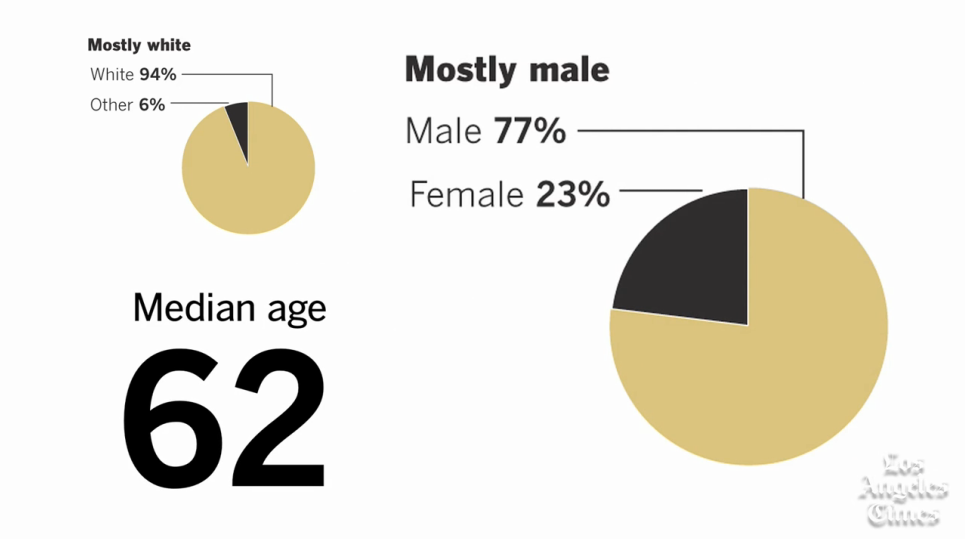The Oscars are a time to celebrate the accomplishments of actors, actresses and filmmakers but not the minorities, according to a new movement in Hollywood.
“My first thought was it’s happening again,” Cody Milner, junior political science and history major, said.
The Oscar nominations displayed a lack of diversity for the second year in a row, according to some in Hollywood. A suggested boycott of the award show began with statements from actress Jada Pinkett Smith and filmmaker Spike Lee, saying they would not be in attendance this year.
“Times are changing and everything isn’t just black and white; it’s Asian, Hispanic, African American, etcetera,” Janet Pugh, junior broadcast journalism major, said. “Awards shows like the Oscars should at least nominate people of diversity.”
The movement has been highlighted on different entertainment programs, including Saturday Night Live and Jimmy Kimmel.
“It’s sad that it is 2016 and we’re talking about the fact that there are no persons of color nominated for an Oscar award,” Gary Jones, Oklahoma Christian University’s multicultural coordinator, said. “It shouldn’t be like that. We should be beyond this by now, but we’re not.”
The Academy of Motion Pictures Arts and Sciences was also criticized for their nominations for white individuals in movies based on lives of African-American lives, including Jonathan Herman for “Straight Outta Compton” and Sylvester Stallone for his role in “Creed”.
Chris Rock, an African American comedian, will host the Oscars ceremony for the second time on February 28. Rock decided not to resign from his show hosting duties, but decided to rewrite his monologue to fit recent events, according to Reginald Hudlin, producer for the Academy Awards, in an interview with ET.
“I think it’s good that he’s decided to host the Oscars because it gives him a platform at that time and place to bring light to the issue,” Jones said. “If you have the opportunity to be vocal about it, you’ve got the attention of everybody in the academy then I think you take advantage of it.”
Due to the lack of minority representation among last year’s nominees, #OscarsSoWhite emerged on Twitter. April Reign, a former attorney and managing editor of BroadwayBlack.com, is credited for creating the hashtag for those who choose to voice their opinions on the matter.
“I think it does have an effect socially, as Twitter is morphing into the top form of social communication for our generation,” Milner said. “I definitely things it’s a way to get the message out and spread an issue that individuals feel needs immediate attention from the public.”
Actresses Lupita Nyong’o and Reese Witherspoon said they were “disappointed” in the lack of diversity and recognition with chosen nominees. Cheryl Boone Isaac’s, the academy’s president, released a statement stating the time for big changes is now.
“The lack of nominations for persons of color is a microcosm of a bigger problem,” Jones said. “The lack of gatekeepers within the industry is keeping minorities from being at the table to make decisions, such as Oscar nominations.”
According to the Los Angeles Times, the academy consists of a 6,261 person voting body, in which 94 percent of all members are white and 77 percent of all members are male. Furthermore, the average age of a member of the academy is 62 years old.
“I think it will be a slow and gradual change,” Jones said. “It’s brought more attention to the problem but I don’t think it will move at the pace society would like it to.”
Isaacs announced that the 51-member board of governors for the academy unanimously voted to implement two new rules to diversify the academy’s members. and resultantly the Oscars, for years to come.
The first measure will limit lifetime voting rights by eliminating the academy members who retire from the industry and replacing them with more women and races The second rule is a commitment that by 2020 the number of women and minorities in the academy will be doubled.
With the new rules, every member gets 10 years of voting privilege, which can be renewed if they remain active in motion pictures throughout the decade. To the members who receive nominations or win an Oscar, they will receive lifelong voting rights. This also applies to those who serve three 10-year terms as a voting member for the academy.
“Yes, there needs to be diversity in award shows but there are way more important issues to focus on at this time than winning awards,” Pugh said.
The Oscars will be broadcasted on ABC at 7 p.m. on February28.












Be First to Comment